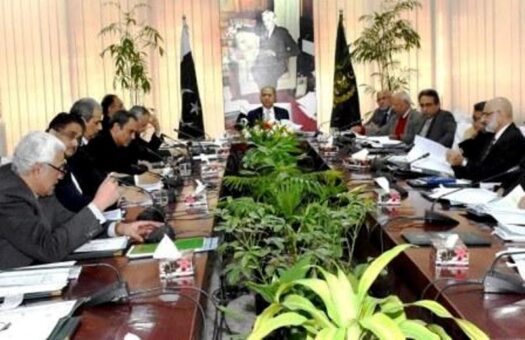KARACHI: The State Bank of Pakistan (SBP) on Tuesday said that the global and domestic spread of Covid-19 has brought an exceptional set of challenges for the country.
“The spillovers from the global economy and the infection-containment measures in the country are bound to weaken the economic activity and consumer demand and adversely impact supply,” the SBP said in its Second Quarterly Review on Pakistan Economic.
As the situation is extremely fluid and highly uncertain, the economic outlook remains subdued compared to the pre-outbreak estimates.
The government and the SBP have therefore taken a number of measures to mitigate the adverse impacts of Covid-19 on the economy.
These include sizable fiscal spending programs, tax reliefs, and incentives to the construction industry.
As for the SBP, within a span of 8 days (in March 2020), the Monetary Policy Committee cut the policy rate by 225 basis points.
Furthermore, the SBP has announced multiple measures to provide relief to borrowers for one year on principal loan repayments, offer concessional financing to businesses that do not lay off workers, provide concessional financing to hospitals seeking to enhance their capacity to provide care for Coronavirus infected individuals, facilitate the general public’s access to financial services, simplify payment procedures for exporters and importers, among other measures.
According to the report, the stabilization efforts and regulatory measures yielded notable improvements during the first half of FY20.
The current account deficit contracted to a six-year low, foreign exchange reserves increased, the primary budget recorded a surplus, and core inflation eased. Importantly, export-based manufacturing showed signs of traction and construction activities picked up, indicating that the economy was on the path of recovery.
Progress under the IMF program remained on track and the credit rating agencies maintained their stable outlook for Pakistan during the review period.
Further improvements will require deep structural reforms to put the economy on a firm path towards sustainable growth.
In case of balance of payments, the report noted that the improvement in current account mostly stemmed from a reduction in the import bill with some contribution from export earnings. Depressed international commodity prices had partially offset the gains in export volumes offered by a competitive exchange rate.
With the exception of the telecommunications sector, foreign direct investment (FDI) inflows were also about the same level as last year. The report emphasized that reforms needed to be prioritized to attract and sustain higher FDI inflows into the country.
Regarding the fiscal sector, the report noted that the primary budget recorded a surplus, while the fiscal deficit was contained during H1-FY20 compared to the same period last year.
This was due to a significant growth in revenues despite a slowdown in the economy and the compression in imports. The reversal of earlier tax concessions and implementation of new levies helped increase the revenue collection.
Nonetheless, the overall revenue target was missed, highlighting the scope for greater efforts to broaden the tax base and increase documentation in the economy.
The report further highlighted the challenges pertaining to the agriculture sector. The sector appears less resilient to challenges like constrained water availability and climate change.
The cotton crop, in particular, was hit by unfavorable weather, pest attacks and low water availability. Though the prospects for the wheat crop and livestock are encouraging, the decline in cotton production is likely to undermine the agriculture sector’s performance in FY20.
On the inflation front, the report noted that the inflationary pressures continued to build up throughout the first half of FY20. While the non-food-non-energy (NFNE) inflation exhibited stability amid subdued demand conditions in the economy, food inflation surged steeply in both the quarters.
Given that the surge in inflationary pressures was mostly an outcome of supply disruptions, which are typically seasonal and temporary and core inflation did not rise by a commensurate amount, the SBP’s projections for the average headline inflation for FY20 remained broadly unchanged at 11-12 percent.
This was one of the major reasons the Monetary Policy Committee decided to keep the policy rate unchanged during both its September and November meetings during the first half of FY20.
To ensure that the stabilization measures lead to a sustainable growth path for the country, the report emphasizes that the ongoing efforts must be complemented with further structural reforms.
In this regard, the Special Section of the report identifies the state of competition in the domestic economy as an area needing attention of the policymakers.
It assesses the current state of competition in the country, and highlights the importance of competition in achieving economic growth and price stability.
The section argues that the overall competitive environment in Pakistan has been unfavorable for productivity enhancement and growth. In this context, a rethinking is needed with respect to the regulatory structure of the economy.
The role of the public sector should generally be limited to addressing market failures through structural reforms, and only providing broad institutional support to businesses.
Where targeted interventions are inevitable to support activity in the presence of market failures, it may be ensured that these do not become entrenched.






